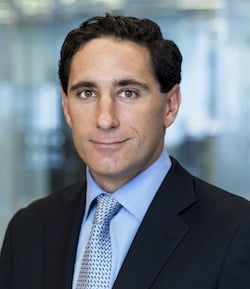
‘Package’ transactions in which at least one of the swap components has been made available to trade (MAT) and is subject to the mandatory Dodd-Frank trade execution requirement, and at least one component is not a swap, must comply with applicable trade execution requirements by November 16.
This requirement bumps up against a rule by CME Group governing execution of such transactions.
The CME rule in question concerns the off-exchange execution of an exchange futures or options-on-futures contract and, on the opposite side of the market, the simultaneous execution of an equivalent quantity of an OTC derivative instrument corresponding to the asset underlying the exchange contract.
“There is uncertainty around the swap-versus-futures package that would be mandated to trade on a SEF following the November 16 expiration of no-action relief,” Chris Amen, head of U.S. institutional rates markets at Tradeweb, told Markets Media. “Currently, the CME Rule 538 prohibits that type of trade from being executed on a SEF as a package, so clients will have to break it up and execute the package as multiple legs of a trade. That’s been getting a fair amount of focus from our clients, and we hope that it will get resolved.”

Chris Amen, Tradeweb
Rule 538 prohibits any SEF-executed swap from being exchanged by market participants as part of a transaction which involves the off-exchange execution of an exchange futures or options on futures contract and, on the opposite side of the market, the simultaneous execution of an equivalent quantity of an OTC derivative instrument.
The rule precludes the execution on a SEF of a packaged transaction comprising a MAT swap and a futures contract, also known as invoice swaps.
The rule states that one cannot have a competitive transaction that happens away from the exchange, but can have a bilateral transaction where you report that type of trade to the exchange, Amen said.
“The challenge in SEF trading is that you have to request quotes from a minimum of two participants [soon to be three] in order to get a quote back for the total package,” he said. “That means the futures transaction leg of that package is not a bilateral trade any more. It is a competitive trade and the CME will not allow that to occur.”
Invoice swaps represent a substantial portion of daily transactions in the interest-rate swaps market. “The futures leg is not, and in fact cannot be, executed on a SEF,” said Shawn Bernardo, CEO of Tullett Prebon’s tpSEF. “Rule 538 doesn’t allow for that swap to be executed on SEF any longer.”
Upon expiration of the relief from the trade execution requirement for packaged trades on Nov. 16, “no one will be able to execute invoice swaps with a MAT component as counterparties are precluded from executing the swap leg on a SEF as a result of CME’s rule,” said Bernardo. “I wonder what will happen to volumes.”
Added Amen, “We know that the CME and the CFTC are working to resolve the issue, but we are prepared to support all of those types of trades like we do today regardless of the state of play come November 16.”
Featured image via Les Cunliffe/Dollar Photo Club





